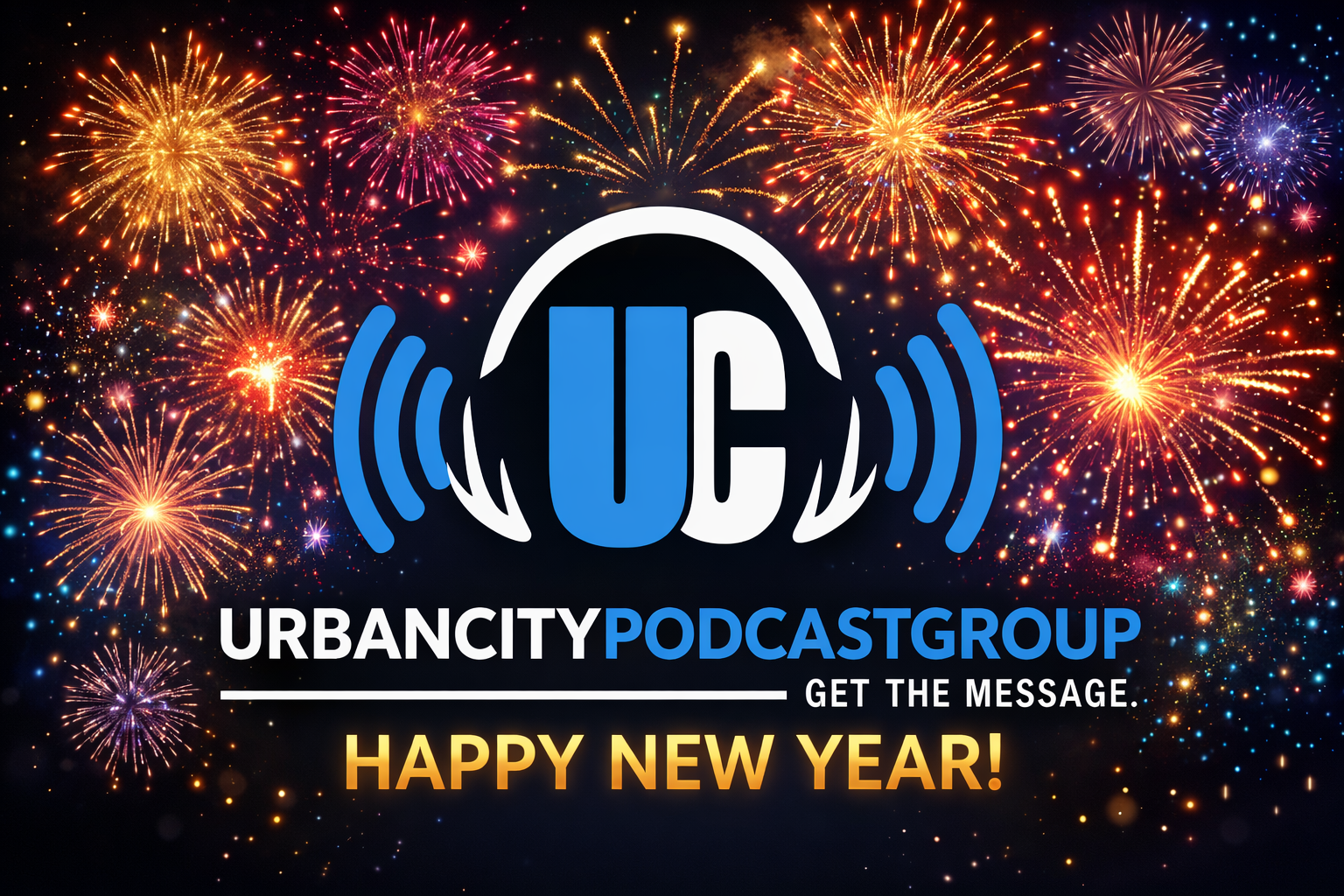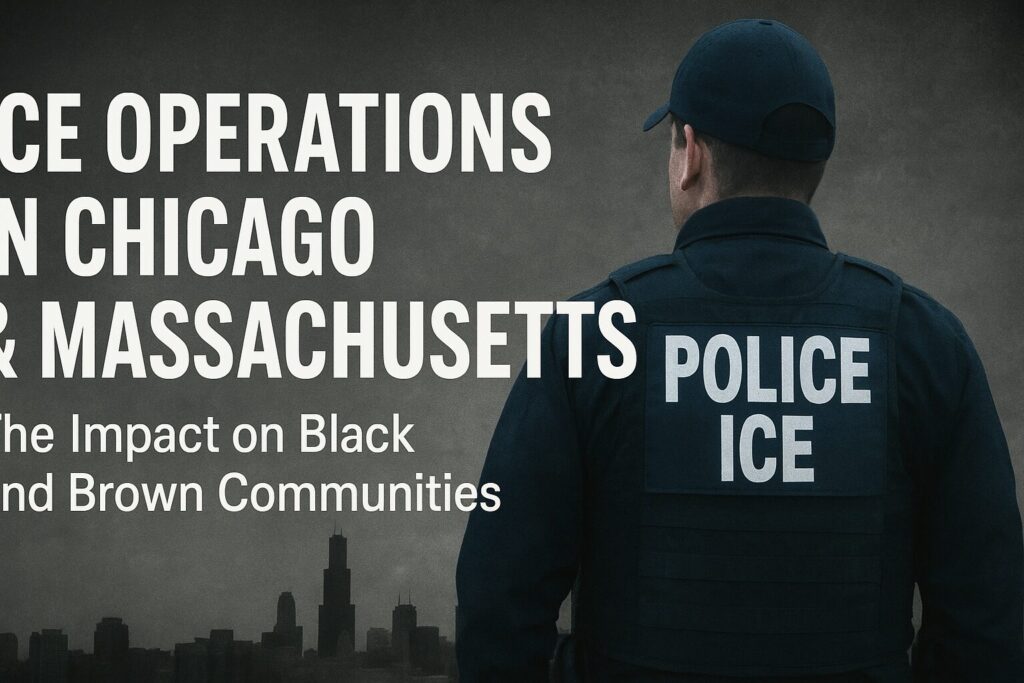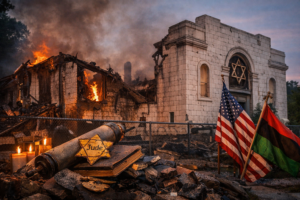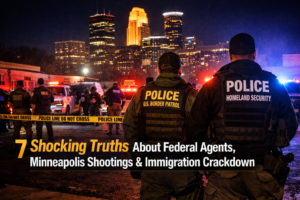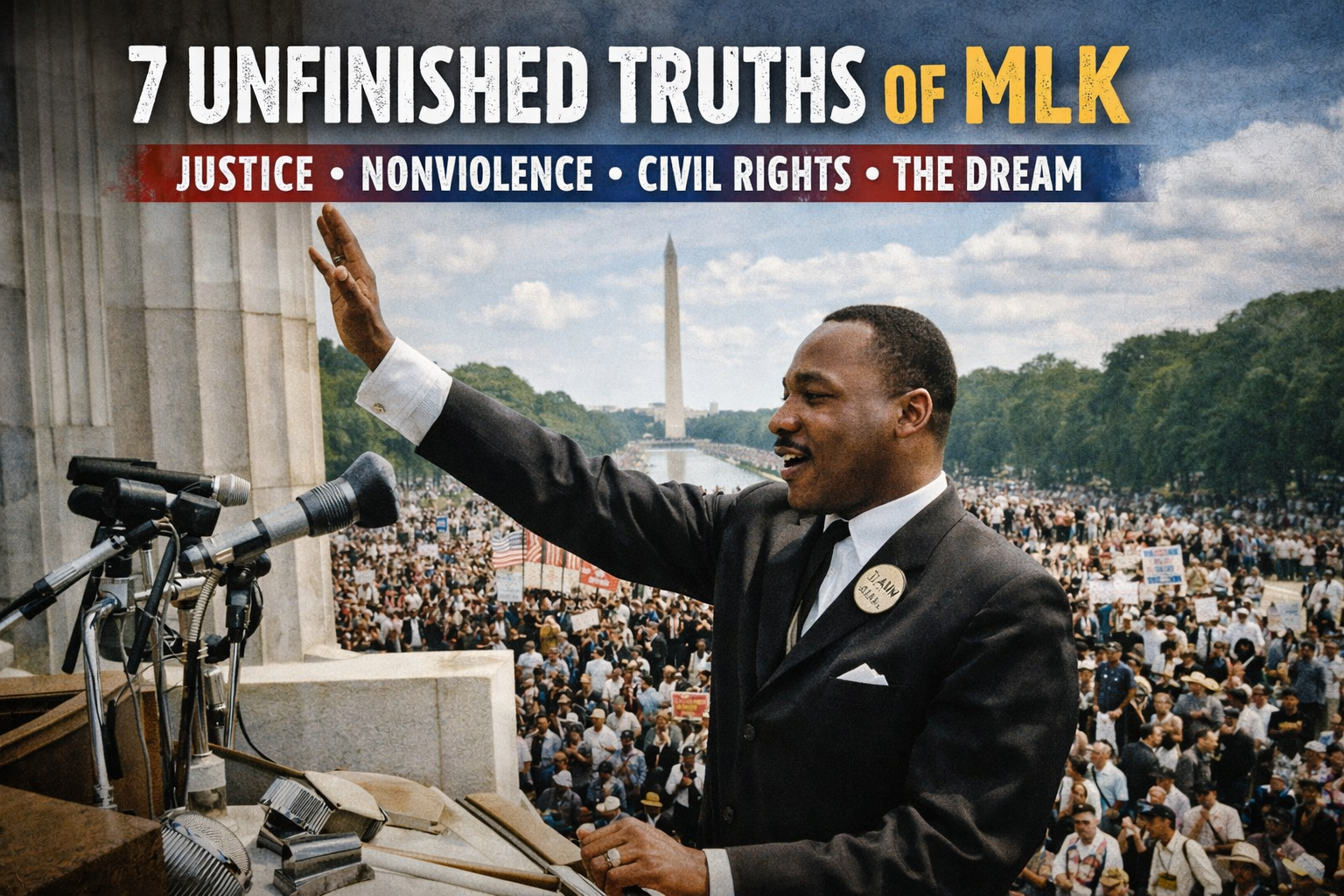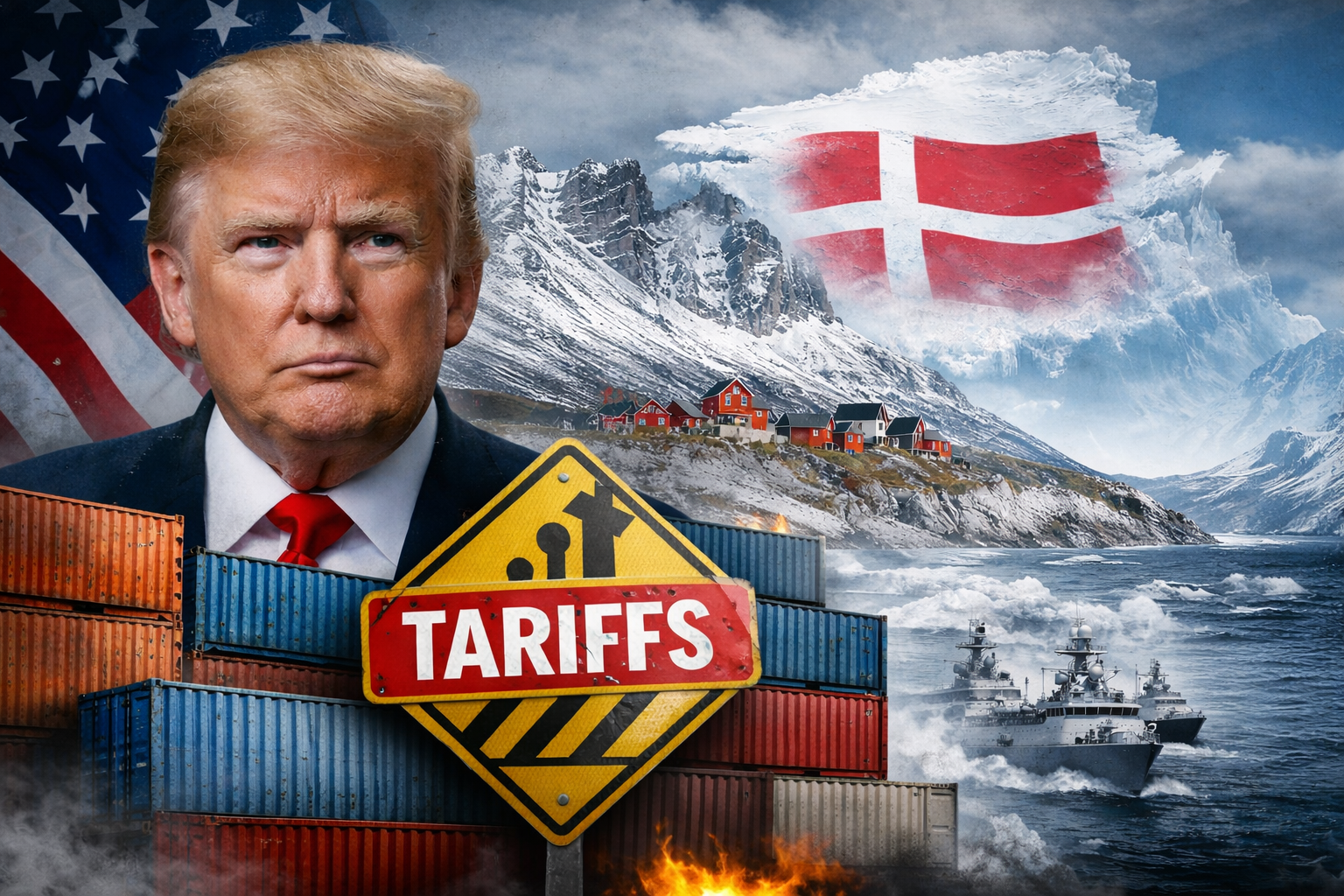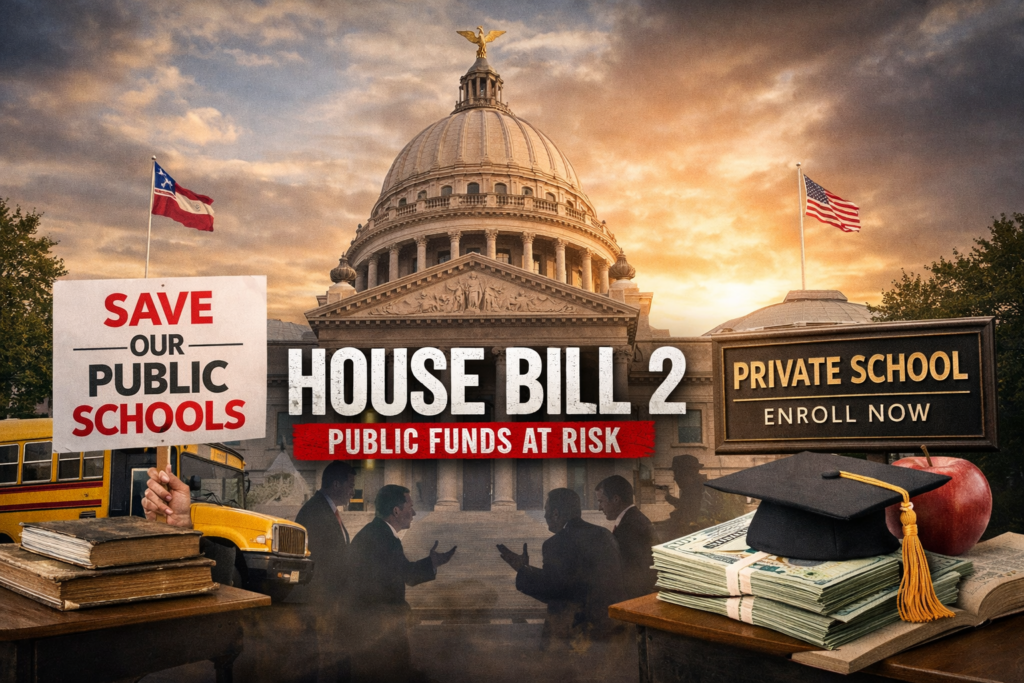Major Takeaways
ICE has launched Operation Midway Blitz in Chicago and Operation Patriot 2.0 in Massachusetts, targeting undocumented individuals with prior detainer records.
Local leaders in both states are resisting, citing civil rights, public trust, and sanctuary protections.
Black and Brown communities feel the ripple effects most, from fear and distrust to reduced engagement in schools, cultural events, and public safety.
ICE Operations Heat Up in Chicago and Massachusetts: What It Means for Black and Brown Communities.
Immigration enforcement is back in the headlines as federal officials ramp up operations in major U.S. cities. Chicago and Massachusetts are now the center of newly launched campaigns—moves that raise tough questions for communities of color about safety, trust, and civil rights.
Chicago: “Operation Midway Blitz”
On September 8, federal agents launched Operation Midway Blitz in Chicago. Immigration and Customs Enforcement (ICE), backed by the Department of Homeland Security (DHS), announced the operation would target undocumented individuals with criminal records.
Reports indicate as many as 300 federal agents could be staged at Naval Station Great Lakes, with operations potentially running for more than a month.
Illinois officials, including Governor JB Pritzker and Chicago Mayor Brandon Johnson, quickly pushed back. Both leaders signed executive orders preventing local law enforcement from assisting ICE and vowed legal challenges to what they described as federal overreach.
At the street level, fear is already taking hold. Some schools and cultural events have seen lower turnout, with organizers of Pilsen’s Mexican Independence Day festivities even canceling gatherings out of concern for public safety.
Massachusetts: “Operation Patriot 2.0”
In Massachusetts, ICE rolled out Operation Patriot 2.0, building on an earlier crackdown this spring that saw more than 1,500 people arrested. The new phase is focused on individuals who were released from local custody despite ICE detainer requests.
Boston Mayor Michelle Wu reaffirmed the city’s sanctuary status, pointing to the Boston Trust Act, which limits police cooperation with federal immigration enforcement. Wu and other city leaders argue these measures are about protecting civil rights and ensuring that residents—documented or not—feel safe engaging with schools, hospitals, and local services.
Why This Matters for Black and Brown Communities
For Black and Brown communities, the impact goes far beyond immigration status. Here’s what’s at stake:
Fear and Distrust – When ICE is active, families often avoid schools, clinics, or cultural events. Everyday life becomes fraught with anxiety, even for citizens and legal residents.
Public Safety Concerns – Experts warn that aggressive federal operations undermine trust in local law enforcement. If communities fear deportation, they’re less likely to report crimes or cooperate with police.
Disproportionate Impact – While ICE insists these raids focus on those with criminal records, past data shows many caught up in sweeps are students, workers, or parents with no criminal background.
Civil Rights Flashpoint – With military-style deployments and threats of National Guard involvement, the line between public safety and heavy-handed occupation becomes blurred. That raises constitutional questions that state and city leaders are ready to fight in court.
The Bigger Picture
What’s unfolding in Chicago and Massachusetts is bigger than immigration enforcement—it’s a test of federal versus local power. Sanctuary cities were designed to shield communities from aggressive crackdowns, but the current administration is signaling those protections are no longer guaranteed.
For Black and Brown neighborhoods, the challenge is twofold: navigating the fear these operations create while also staying engaged in civic life. Leaders across Chicago and Boston are encouraging residents to know their rights, connect with legal aid, and support community defense networks.
The Bottom Line
ICE may call these “targeted operations,” but the ripple effects spread far wider than the individuals detained. Families, neighborhoods, and entire cities feel the weight of these actions.
For Urban City Podcast readers, the key question isn’t just about immigration policy—it’s about how communities of color prepare, protect, and push back when federal power lands on local streets.
